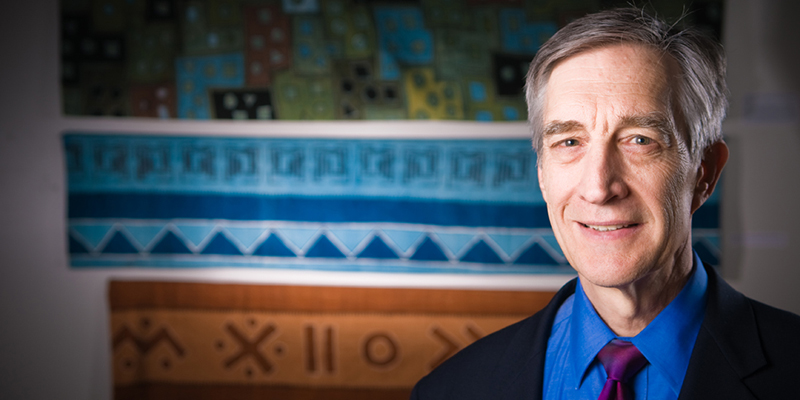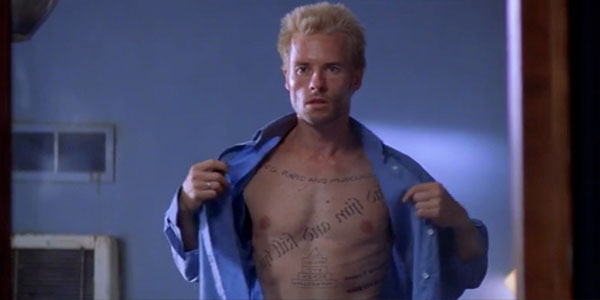Re-membering RCAH after 2020
January 7, 2021
By Stephen Esquith, Dean of the Residential College in the Arts and Humanities
 2020 was a bundle of contradictions. Heartaches by the number—over 350,000 deaths in the U.S. alone due to Covid-19, the videotaped police murder of George Floyd, constant attacks on democratic norms by a President who felt no shame in suppressing voter turnout by people of color and undermining confidence in free and fair elections—coupled with moments of courage as many of those most at risk and most under attack have raised their voices in protest and voted to restore democracy. It is hard to imagine a starker contrast than the one between the rioters who attempted to violently disrupt Congress on January 6 as it was certifying the votes of the Electoral College and the many lawful Black Lives Matter protests against acts of voter suppression and police violence. Living through this year with family, friends, neighbors, fellow students, and co-workers has been emotionally exhausting.
2020 was a bundle of contradictions. Heartaches by the number—over 350,000 deaths in the U.S. alone due to Covid-19, the videotaped police murder of George Floyd, constant attacks on democratic norms by a President who felt no shame in suppressing voter turnout by people of color and undermining confidence in free and fair elections—coupled with moments of courage as many of those most at risk and most under attack have raised their voices in protest and voted to restore democracy. It is hard to imagine a starker contrast than the one between the rioters who attempted to violently disrupt Congress on January 6 as it was certifying the votes of the Electoral College and the many lawful Black Lives Matter protests against acts of voter suppression and police violence. Living through this year with family, friends, neighbors, fellow students, and co-workers has been emotionally exhausting.
This is the larger context in which those of us healthy enough and still employed have tried to do our work. For those working in higher education—staff, faculty, and students—there is an additional source of exhaustion beyond the dangers of infection and political demoralization. In this unprecedented moment in our country’s history those of us who have enjoyed our work in a residential college organized around face-to-face teaching and learning and the value of community have found that adapting to living and learning online brings with it a peculiar form of exhaustion.
We should be proud of the ways RCAH has responded, and I’ll mention some of them in a moment. But first, I’d like to consider how a strict diet of online instruction in a residential college can alter our ability to remember who we are.
Remembering who we are after almost a year online and putting the pieces together to form a coherent learning community (“re-membering”) is not easy. Who we are depends upon our memories of what we’ve done, with whom, and where. That is to say, our memories are place-based and social. However, our memories of the last year—memories of classes, meetings, and conversations online—don’t have the weight and sticking power of our pre-Covid memories that have been formed and anchored in RCAH’s carefully designed learning spaces and in the interaction with community partners where the live and work.
The analogy of the 2000 movie Memento comes to mind, a movie that shows, not just tells us what it feels like to try to remember without being anchored in place or connected to others. Directed by Christopher Nolan, the film was a commercial success endorsed by neuroscientists as an accurate portrayal of short-term memory loss. https://en.wikipedia.org/wiki/Memento_(film).
Leonard Shelby, the main character of Memento, suffers from repeated short-term memory loss due to a violent traumatic event in his life that he vaguely remembers. Every fifteen minutes he forgets what has just happened to him, so he makes cryptic notes on paper and tattoos them on his own body, trying to piece together what happened that caused this trauma. He repeatedly rediscovers these notes and tattoos and tries to put past and present together, but every new effort at recollection quickly disappears as his short-term memory fails him again. By the end of the film, the viewer is no more confident about what exactly traumatized Leonard than Leonard will be when his last over-confident belief in the solution to the puzzle inevitably fades like all his earlier short-term memories.
What may end up making our 2020 “RCAHmemories” elusive is that many of them were formed almost entirely online, away from the familiar formal and informal learning spaces that constitute the RCAH community. The social cross-referencing and consulting that we depend upon to form reliable shared memories and a sense of belonging to the RCAH community are much more difficult when all we have are online memories to go by that float unanchored on the screen. They are ephemeral short-term memories, and they may fade, leaving us more uncertain of who we are as a college.
Switching abruptly from in-person RCAH classes and co-curricular events to a totally virtual environment reminds me of what Leonard Shelby seems to feel like when he unsuspectedly looks at himself in the mirror and sees (for what he mistakenly thinks is the first time) his body covered in tattoos that he had written but by then forgotten he had written them.

Of course, we aren’t as confused about what’s happened over the last year as Leonard was. But putting the pieces of 2020 together in a way that will meaningfully sustain our residential community in a “post-pandemic academy” will take time and effort. Memento is a cautionary tale, which means that we can avoid Leonard’s fate if we re-member that we are members of a very specific kind of place-based community that learns from one another.
RCAH students, faculty, and staff already have begun to recapture this sense of place by helping one another use new technologies to connect to heretofore remote rural communities, prison populations, and impoverished minorities suffering from armed violence. We are already using new technologies to open up our classrooms to disabled, neurodivergent, and non-traditional students who do not always feel at home in visual and performing workshops. Doing this “in place” with others will help to restore our sense of belonging, but it is not a substitute for the physical spaces that define RCAH. It is a way to return with an enlarged sense of place and belonging.
2020 was an exhausting year, as 2021 will be. But as we carry on, designing new, more radical forms of reciprocity and enriching a community already rich in diverse ways of thinking and seeing the world, the RCAH we re-member can be a place where those things that were threatened in 2020—our democratic norms and our sense of belonging—will grow even stronger.
Now, in spring semester 2021 as MSU begins to plan for the 2021-22 academic year, RCAH and the other residential colleges, like the rest of the University, are being called upon by the President and Provost to imagine their college’s place within a post-pandemic academy. To do this, we will have to assess how online instruction in spring and fall semesters 2020 changed what we did then and what it may require of us in the future.
There is a lot to look forward to in 2021, including imagining creative ways in which our engaged curriculum and the co-curricular programs that are an organic part of RCAH can be sustained. The planning that we now are doing for next year, combined with our actions and the extraordinary measures we took in 2020—and will continue to take during the spring 2021 semester—are an important part of this re-membering process.

